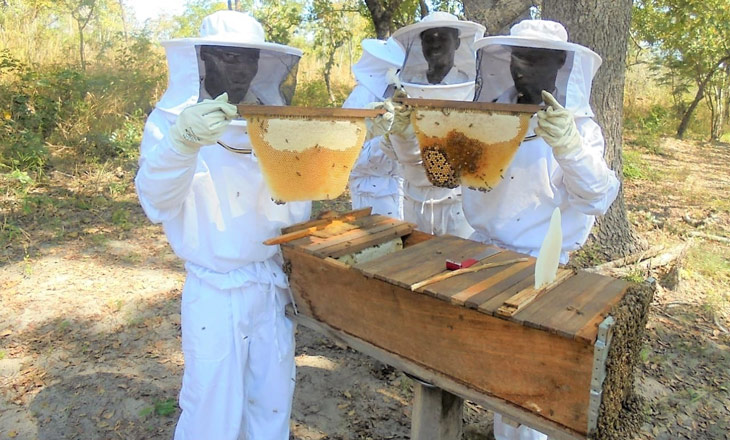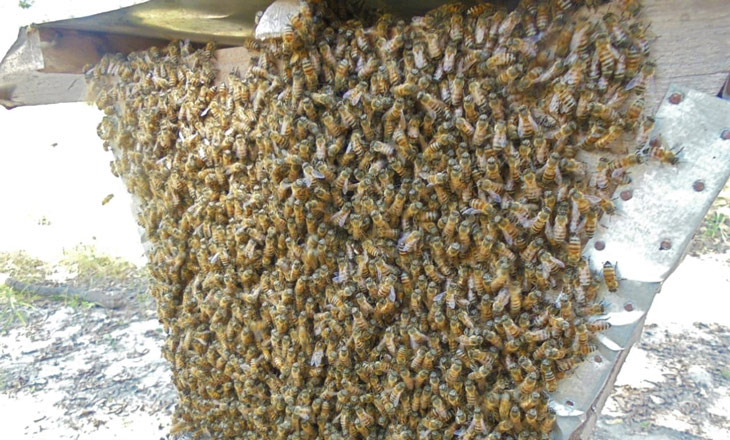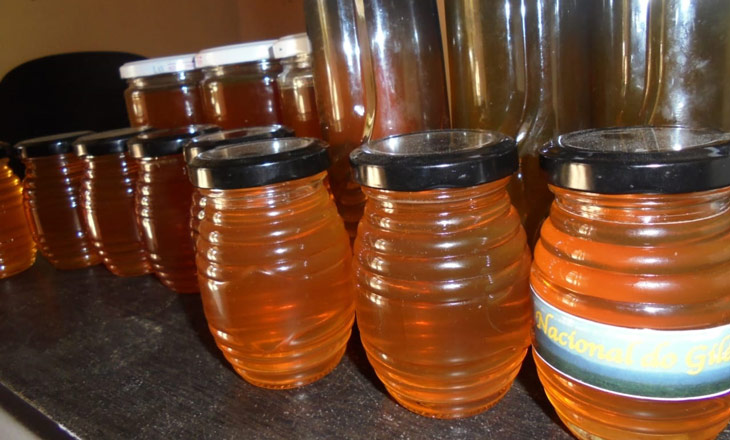Between 11 August and 8 September 2021, the Community Development Department of the Gile National Park held activities to assess the current stage of implementing beekeeping for the benefit of the local communities.
Published at 15/09/2021
Gilé National Park strengthens Beekeeping for the Development of Local Communities
The practice of beekeeping is part of a series of activities to raise community awareness that the Gile National Park has been undertaking with the aim of promoting the sustainable use of natural resources and community development. In addition to these activities, there also stand out the fight against uncontrolled bush fires and forest degradation, the mitigation of conflicts between people and wild life, and the use of non-timber forest products.
In this context, interviews with the beneficiaries were held, listening to their knowledge about the importance of beekeeping, safety in the exploitation of honey, the techniques used in producing, collecting and managing honey, as well as other derivatives. In addition to the interviews, the beekeepers were accompanied in their workplace, and the techniques and methods used in the entire process of extracting honey were observed.
This activity resulted in harvesting 24,610 litres of honey, in 12 beneficiary communities of the Gilé National Park, namely: Ratata, Munhado, Mihecue, Naheche, Vassele, Namurua, Nacurugo, Muicune, Mucucune, Pipine, Nipamo and Musseia. The honey harvested will be sold, and the money obtained will be reinvested to the benefit of the producer communities so that they may acquire other basic products for their subsistence.
Beekeeping is one of the community activities which it is intended to relaunch and expand with funds from the PROMOVE Biodiversidade program, seeking to create alternative livelihoods for communities living inside and outside the Gilé National Park, which is one of 3 areas benefitting from the Programme financed by the European Union, and implemented by the Foundation for the Conservation of Biodiversity (BIOFUND), in partnership with the National Administration of Conservation Areas (ANAC).




